How to Improve Sleep Quality Naturally in Your 40s
This page may contains affiliate links. We may earn a commission for purchases made at no additional cost to you. The content on this website was created with the help of AI.
Achieving restful sleep in your 40s can be challenging due to lifestyle changes, stress, and hormonal shifts. However, with the right strategies and supportive products, you can improve your sleep quality naturally and wake up feeling rejuvenated.
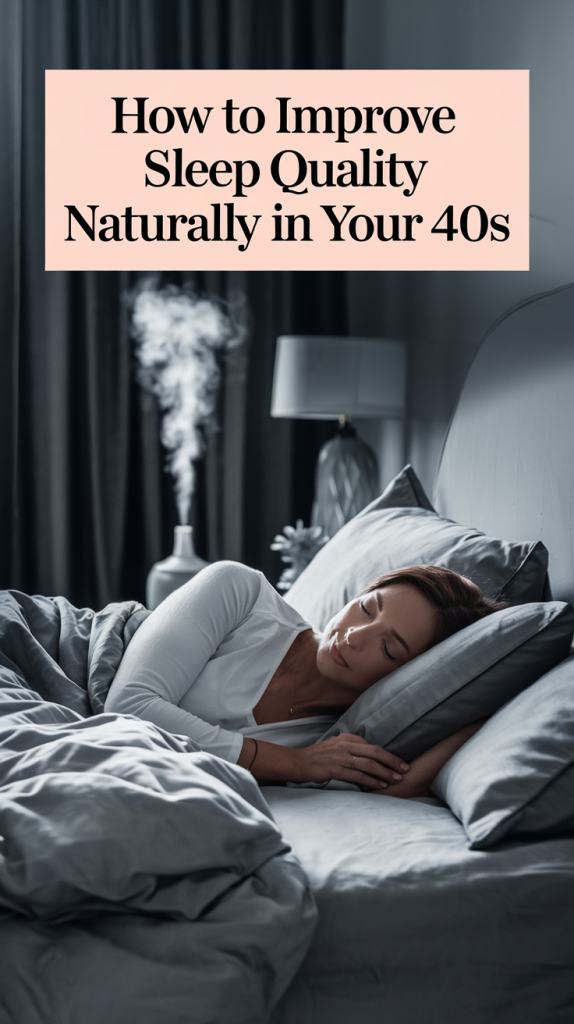
Establish a Consistent Sleep Schedule
Maintaining a regular sleep-wake cycle helps regulate your body’s internal clock, making it easier to fall asleep and wake up refreshed. Going to bed and waking up at the same time every day, even on weekends, reinforces this natural rhythm. Reducing long daytime naps can also prevent disruptions to your nighttime sleep.
🌟 Sleep Aid White Noise Machine – A white noise machine can help you stay asleep by masking background noises, making it easier to maintain a consistent sleep pattern.
Picture this: Your body effortlessly transitions into sleep mode each night, and you wake up naturally without an alarm, feeling fully recharged.
Create a Relaxing Bedtime Routine
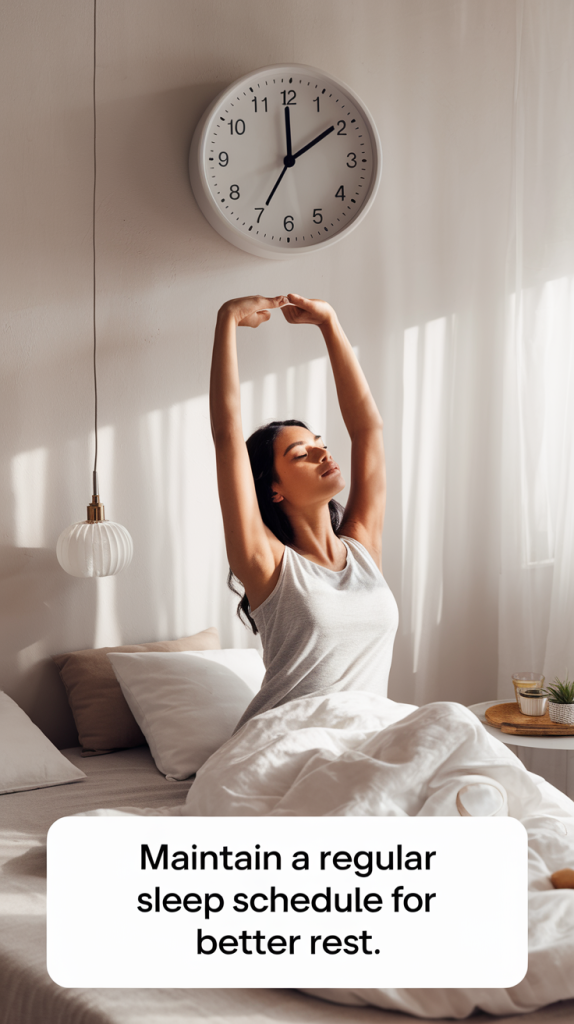
A calming nighttime routine signals to your brain that it’s time to wind down. Engaging in relaxing activities like deep breathing, meditation, or light stretching can reduce stress and promote relaxation. Avoiding screens and stimulating content an hour before bed can also make a significant difference in sleep quality.
🌿 Aromatherapy Essential Oil Diffuser – Using a diffuser with lavender or chamomile essential oils can create a soothing sleep environment and help you relax before bed.
Picture this: A soft, calming scent fills your room, your mind unwinds, and your body gradually drifts into a deep and peaceful sleep.
Optimize Your Sleep Environment
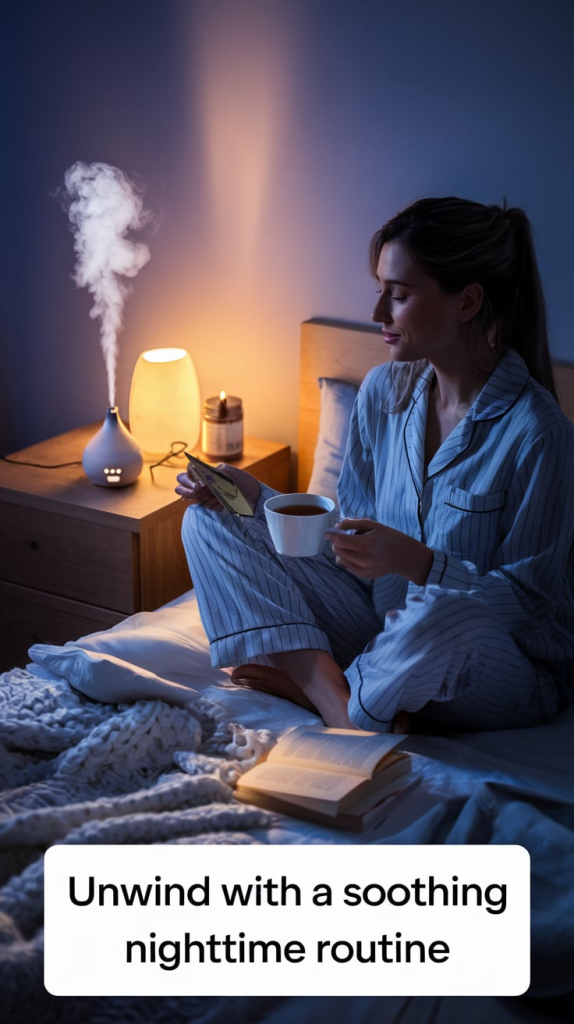
A comfortable bedroom setup plays a crucial role in sleep quality. Keeping your room cool, dark, and quiet minimizes disturbances that can interrupt rest. Investing in high-quality bedding, blackout curtains, and a supportive mattress can enhance overall comfort.
🏡 Blackout Curtains for Bedrooms – These curtains block out external light, ensuring a pitch-dark environment for deep, uninterrupted sleep.
Picture this: Your bedroom becomes a peaceful sanctuary, perfectly set for the best sleep of your life.
Monitor Your Diet and Hydration
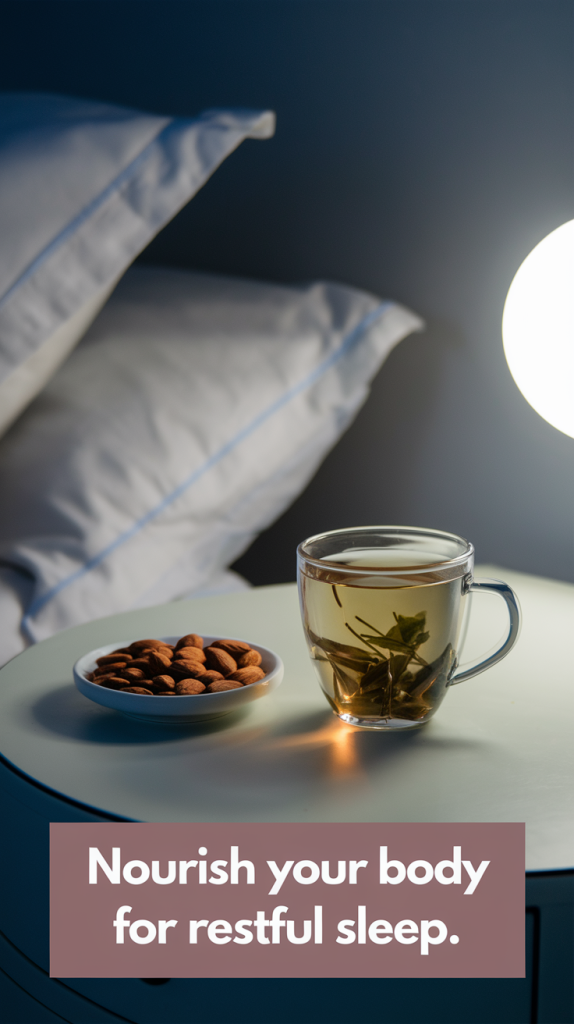
What you eat and drink before bed affects how well you sleep. Large meals, caffeine, and alcohol can disrupt your sleep cycle, making it harder to fall and stay asleep. A light snack with sleep-supporting ingredients like magnesium or tryptophan, such as almonds or warm milk, can be a better alternative.
🍵 Herbal Sleep Tea – A caffeine-free tea blend with chamomile and valerian root helps calm your nervous system and prepare your body for sleep.
Picture this: You sip a warm, soothing tea in the evening, your body relaxes, and sleep comes effortlessly when you lie down.
Incorporate Regular Physical Activity
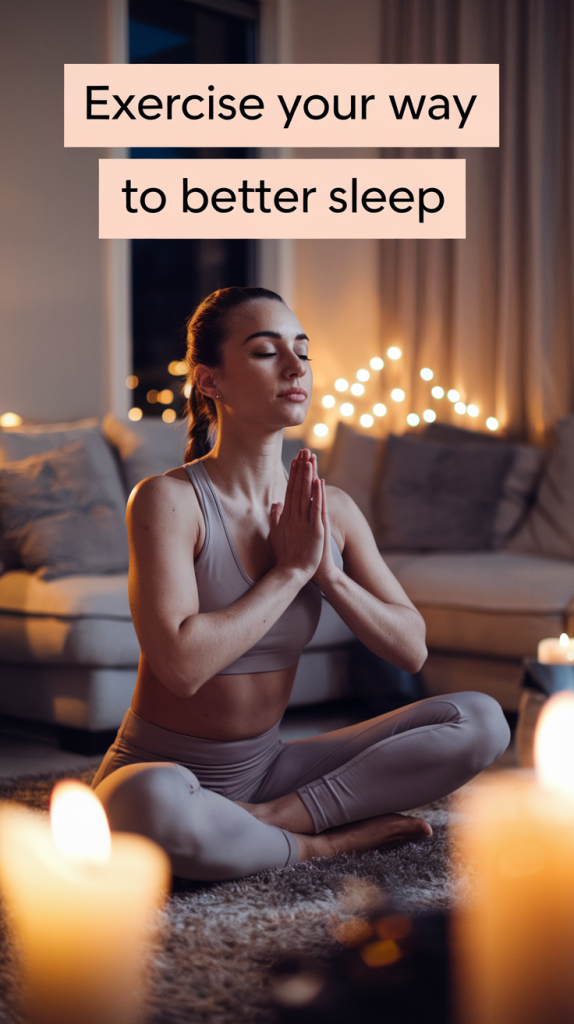
Regular exercise helps regulate sleep patterns and reduces stress levels. Engaging in at least 30 minutes of moderate activity, such as walking or yoga, can make it easier to fall asleep at night. However, working out too close to bedtime may have the opposite effect, so it’s best to exercise earlier in the day.
🏋️ Yoga Mat for Relaxing Stretches – Gentle yoga before bed can relax your muscles and mind, making it easier to transition into restful sleep.
Picture this: After a refreshing morning walk and gentle evening stretches, your body feels at ease, making sleep come naturally.
Manage Stress and Anxiety
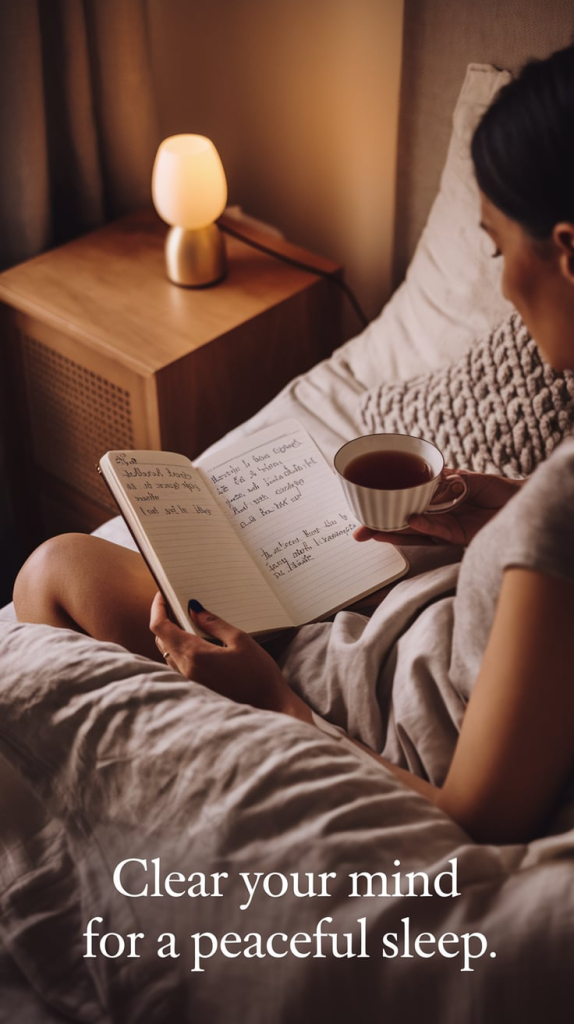
Mental stress is one of the biggest sleep disruptors. Managing stress through mindfulness, journaling, or deep breathing exercises can improve sleep quality. Writing down thoughts before bed helps clear your mind and prevents racing thoughts from keeping you awake.
📝 Guided Sleep Journal – A sleep journal allows you to release worries and track habits that affect your sleep patterns.
Picture this: You jot down your thoughts, clear your mind, and drift into a deep and restful sleep, free from stress and anxiety.
Explore Natural Sleep Aids
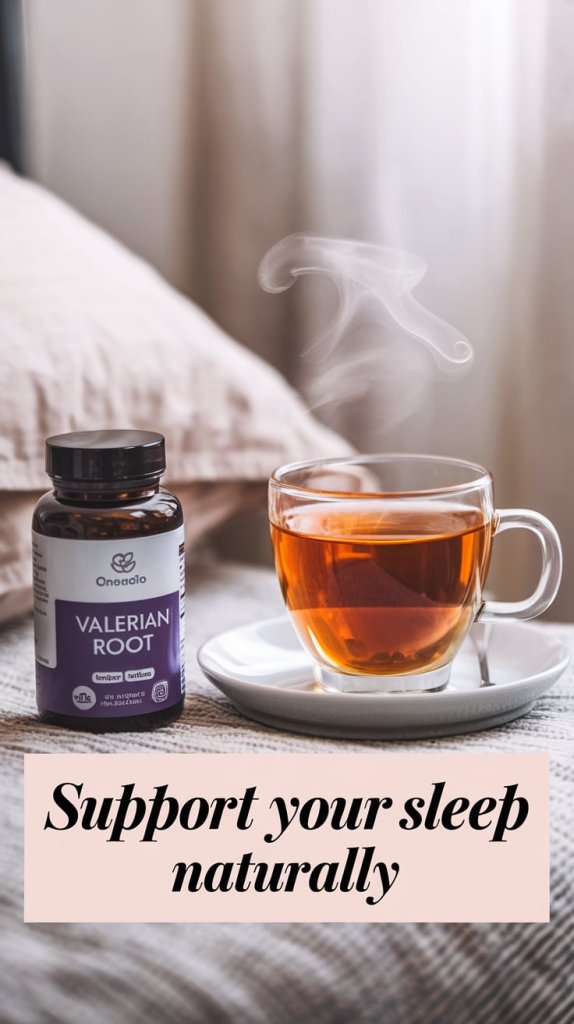
Certain natural supplements and remedies can support sleep without the side effects of medication. Melatonin, magnesium, and valerian root are commonly used to improve sleep quality. Always consult with a healthcare professional before starting any new supplement.
🌱 Magnesium Sleep Support Supplement – Magnesium helps relax the nervous system and may improve sleep duration and quality.
Picture this: With the right natural support, your body eases into a deep sleep, allowing you to wake up refreshed and full of energy.
Limit Screen Time Before Bed

The blue light emitted by screens can interfere with melatonin production, making it harder to fall asleep. Reducing screen exposure at least an hour before bed can significantly improve sleep quality. Instead, reading a book or listening to soothing music can help you unwind.
🔦 Blue Light Blocking Glasses – Wearing these glasses in the evening can reduce blue light exposure and help maintain your body’s natural sleep cycle.
Picture this: You replace nighttime screen time with a relaxing book, and your body naturally transitions into sleep mode without artificial light disruptions.
Evaluate Your Sleep Position

Your sleeping posture can impact sleep quality and overall health. Finding a position that supports your body’s alignment can prevent aches and pains. Sleeping on your side with a pillow between your knees can help alleviate back pain, while a supportive pillow can enhance neck alignment.
🧥 Memory Foam Pillow for Neck Support – This pillow provides proper support, reducing discomfort and helping you sleep more soundly.
Picture this: You wake up free from stiffness and pain, fully rested, and ready to take on the day.
By implementing these natural strategies and incorporating supportive products, you can enhance your sleep quality and overall well-being in your 40s. Sweet dreams!





